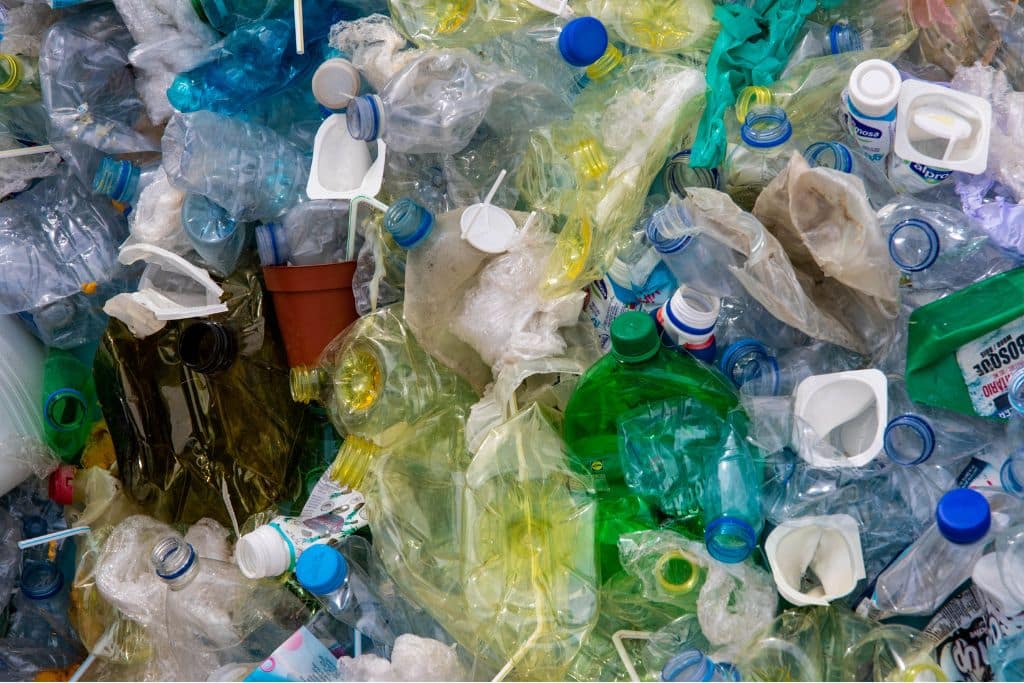If the plastics industry was a nation, it would be the world’s fifth-largest in terms of greenhouse gas emissions. So why isn’t the upcoming United Nations Climate Change Conference, COP28, planning to address the issue of plastic waste and pollution, and explore alternative materials?
—
Plastic is a global climate issue and should very much be on the agenda for the upcoming UN climate summit, COP28, which begins November 30 in Dubai. In addition to greenhouse gas emissions during the production of plastics, which are mainly made from fossil fuel feedstocks, the incineration and recycling of plastics results in high levels of planet-warming emissions.
Plastic pollution also disrupts several key climate-related processes on earth, including the ocean’s ability to absorb carbon dioxide. As floods and typhoons become more frequent amid climate change, plastics and microplastics only get further dispersed in oceans and waterways, scientists say.
Plastic pollution and waste need to be addressed now, on a global scale. If we do not address these issues, things will only get worse as global plastic production is forecast to triple by 2060.
Traditional approaches to plastic waste reduction, including recycling, are not working. In fact, only 9% of all plastic produced globally is actually recycled, due to challenges with contaminated items, sorting of materials and the high costs of the process. Policymakers need to urgently explore alternatives, including compostables and bioplastics.
In sharp contrast to traditional plastics, compostable plastics make a positive contribution to the environment thereby reducing climate impact. In addition to producing zero waste when disposed of properly, they produce nutrient-rich compost, which can be applied to agricultural fields. In our warming world, where soil erosion is a worsening problem and feeding a growing population looms as a huge challenge, compost is a key solution. When used on fields, compost helps sequester carbon, increase crop yields and reduce irrigation needs. This makes compostable plastics a truly circular solution.
These alternative plastics are especially useful in the food sector, because scraps of food waste can be composted along with their packaging. Therefore, policymakers should prioritise more incentives for businesses and brands to use innovative compostable packaging along with a regulatory framework requiring that organic waste be composted. These two initiatives go hand-in-hand. A third critical piece is increased public funding for compost infrastructure, to make composting accessible and convenient for consumers everywhere.
These are all critical issues when tackling the growing threat of climate change. It is difficult to imagine making any real positive impact on the climate without considering alternatives to traditional plastic and the role of composting. It is baffling and a shame they are not on the COP28 agenda. We are rapidly losing time to save our precious planet.
You might also like: 6 Policies and Innovations Tackling Plastic Pollution


















